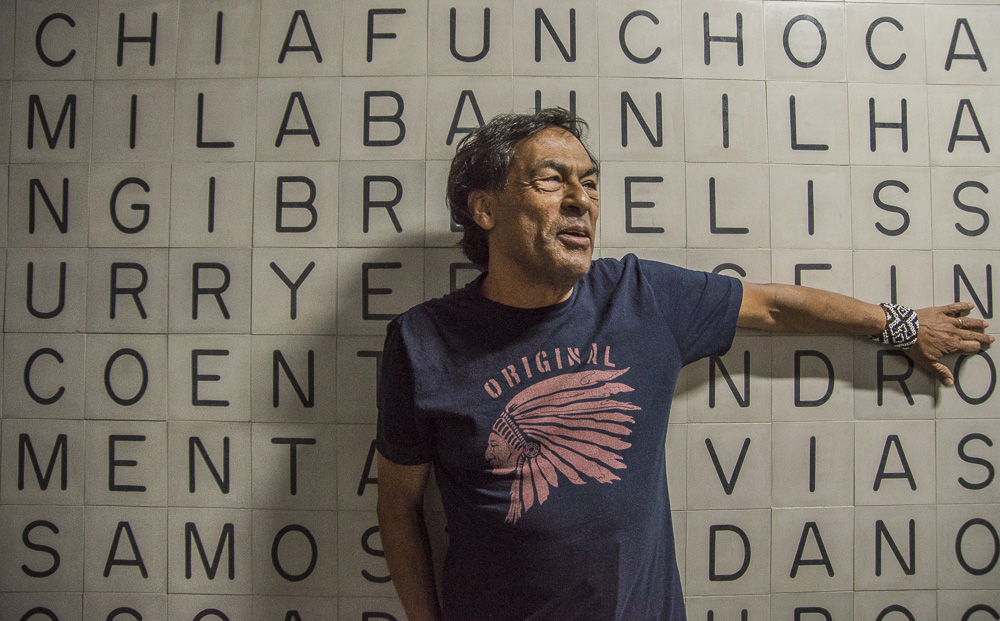No. 23
Our Worlds Are at War
Ailton Krenak and Maurício Meirelles
29.01.2021
“It is only possible to imagine nature if you are outside of it” – these are the words of the native Brazilian activist Ailton Krenak.
The following testimony by Ailton Krenak, a longtime indigenous activist and intellectual in Brazil, was originally published in the December 2019 issue of the Brazilian magazine Olympio: Literatura e Arte.
Foreword
Standing at the podium of the Brazilian Chamber of Deputies, speaking the white language perfectly, a young indigenous leader addresses the 1987 National Constituent Assembly with an unusual sort of speech. Having already been barred from entering the plenary in his typical dress, he wears casual Western clothes, a white three-piece suit lent to him by a deputy who is his friend, and holds a small container in his hands.
“I do not wish to disrupt the etiquette of this house with my demonstration, but I believe that …” He pauses, and begins to scoop a dark paste from the container with his fingers, which he then spreads on his face. “I believe that you, honorable members, can no longer stand at a distance from your aggression motivated by economic power, by greed, by ignorance of what it means to be an indigenous people …”
Barely audible, a female deputy whispers: “But he is painting himself all black.” It is genipap paste, used by many Brazilian indigenous ethnic groups for mourning rituals. The young man speaks slowly, but with determination: “I think that none of you could point to aspects or acts of the indigenous people of Brazil that put the life or the patrimony of any person, of any human group from this country at risk …”
With a flat hand, he paints his cheeks, forehead, nose, and chin. Those in the room hear the sound of many cameras clicking. “A people that has always lived in the absence of riches, a people that lives in houses covered with thatch and sleeps on mats on the floor, cannot be identified, in any way, as a people that is the enemy of national interests, nor that puts any development at risk.”[…]
Maurício Meirelles

